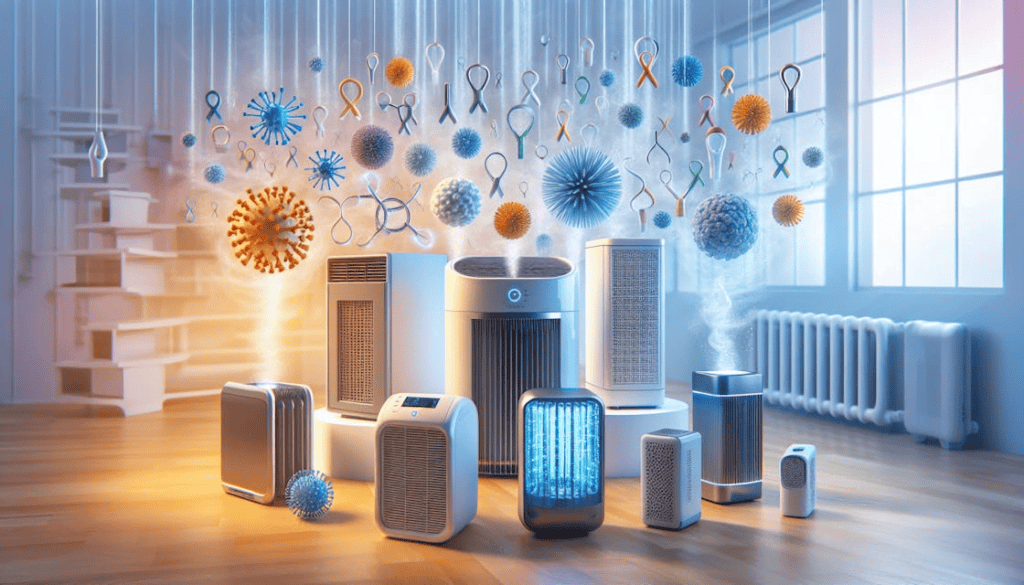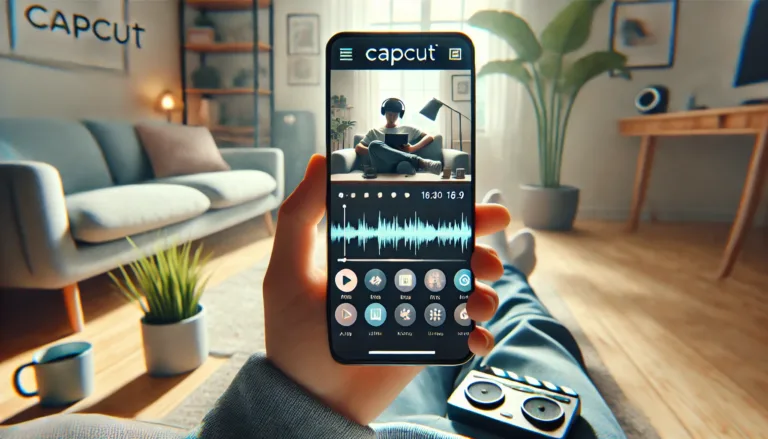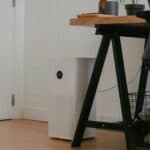
Getting the Lowdown on Air Purifiers
Types of Air Purifiers
Breathing clean air indoors is a game-changer. Different air purifiers tackle pollutants in their own ways, so knowing the basics can help you pick the right one for your space.
- HEPA Filters: These bad boys, High-Efficiency Particulate Air (HEPA) filters, snag 99.97% of particles as tiny as 0.3 microns. Dust, pollen, mold, bacteria—you name it, they catch it. Dive deeper into the world of HEPA air purifiers.
- Activated Carbon Filters: Got smells? These filters are your go-to. They trap gases, VOCs, and odors by sticking them onto a bed of activated carbon. Perfect for zapping those funky smells and harmful chemicals.
- UV Light Purifiers: These use UV-C light to zap bacteria, viruses, and mold spores. Often paired with other filters, they give your air a thorough clean.
- Ionizers: These gadgets release negative ions that make particles clump together and fall out of the air. Less mold, bacteria, and viruses floating around.
Pros and Cons
Air purifiers are awesome, but they come with their quirks. Let’s break it down.
Pros
- Cleaner Air: HEPA filters are champs at scrubbing the air, which is great news for folks with asthma, allergies, or other breathing issues. Check out our piece on air purifiers for allergies if you’re sneezing up a storm.
- Odor Busters: Activated carbon filters kick out bad smells from cooking, pets, and smoke, leaving your air fresh.
- Health Perks: Ionizers can lift your mood and sharpen your mind (Healthline).
Cons
- Ozone Worries: Some ionizers spit out ozone, which can mess with your lungs and make breathing problems worse.
- Upkeep: Keeping these machines in tip-top shape means regular filter changes, which can add up in cost and effort.
- Noise: Some purifiers can be loud, which might bug you, especially at night. Always check the noise levels before buying.
| Technology | Pros | Cons |
|---|---|---|
| HEPA Filters | Snags 99.97% of particles | Needs filter changes |
| Activated Carbon | Kills odors and VOCs | Not great for particles |
| UV Light | Zaps germs | Can be pricey |
| Ionizers | Cleans air, boosts mood | Might produce ozone |
Picking the right air purifier means balancing these pros and cons. For more tips, especially if you have furry friends, check out our guide on air purifiers for pets.
Knowing your options helps you make the best choice for clean, healthy air at home.
Ionizers vs. Air Purifiers
Keeping the air in your home clean and fresh can feel like a never-ending battle. One of the big decisions you’ll face is choosing between ionizers and traditional air purifiers. Let’s break down what ionizers are and how they stack up against air purifiers.
What’s an Ionizer?
An air ionizer releases negative ions into the air. These ions latch onto airborne particles, making them clump together and fall onto surfaces where you can easily clean them up. This can help keep mold, bacteria, and viruses at bay, which is a huge plus for anyone worried about indoor air quality.
Negative ions also have some cool side benefits. They can reduce odors and make the air feel fresher. Some studies even suggest they can help with depression and boost cognitive performance.
But there’s a catch. Some ionizers produce ozone, which can be harmful if there’s too much of it. While ozone can zap viruses by damaging their genetic material, too much of it can be a health risk.
Air Purifiers with Ionizer Tech
Air purifiers that include ionizer technology give you the best of both worlds. These gadgets not only release negative ions but also use filters and fans to clean the air. This makes them more effective at removing harmful particles compared to standalone ionizers. If you have asthma or allergies, this is a game-changer.
Look for purifiers with a HEPA filter. These filters capture 99.97% of particles that are 0.3 microns in diameter, making them super effective at cleaning the air.
| Feature | Ionizers | Air Purifiers with Ionizer Tech |
|---|---|---|
| Negative Ion Release | Yes | Yes |
| Removes Mold/Bacteria | Yes | Yes |
| HEPA Filter | No | Yes |
| Ozone Production | Sometimes | Sometimes |
| Suitable for Allergies | No | Yes |
For those dealing with allergies or asthma, air purifiers with ionizer tech are a solid choice. They offer the benefits of negative ions while also ensuring thorough air cleaning with filters. Check out our pages on air purifiers for allergies and air purifiers for mold for more info.
By understanding the differences and benefits of these devices, you can make a choice that best suits your needs, keeping your indoor air clean and healthy.
Picking the Perfect Air Purifier
Choosing the right air purifier can seriously up your indoor air game. Here’s what I found out about the key things to consider and why HEPA filters are a must-have.
What to Look For
When you’re on the hunt for an air purifier, keep these points in mind:
- Room Size: Make sure the purifier is the right fit for your room. Manufacturers usually list the recommended room size for their units.
- Air Changes Per Hour (ACH): This tells you how many times the purifier can clean the air in a room in an hour. Higher ACH rates are better for really polluted spaces.
- Clean Air Delivery Rate (CADR): CADR shows how much filtered air the purifier pumps out. It’s usually broken down into smoke, pollen, and dust. Higher CADR means quicker air cleaning.
- Filter Type: Different filters tackle different pollutants. HEPA filters are great for particles, while activated carbon filters handle gases and smells.
- Noise Level: Think about the noise, especially if you need it in a quiet place like a bedroom.
- Maintenance Costs: Don’t forget the cost of replacement filters and electricity. Some models might be pricier upfront but cheaper to maintain over time.
Here’s a handy table to sum it up:
| Factor | What It Means |
|---|---|
| Room Size | Match the purifier to your room size |
| ACH | Higher rates mean better air cleaning |
| CADR | Measures how much air gets filtered |
| Filter Type | HEPA, activated carbon, etc. |
| Noise Level | Important for quiet spaces |
| Maintenance Costs | Includes filter replacements and electricity |
For more details, check out our article on air purifiers for allergies.
Why HEPA Filters Matter
HEPA filters are the real MVPs of air purification. They snag at least 99.97% of particles that are 0.3 microns or bigger. This means they’re awesome at catching dust, pollen, mold, and other tiny nasties.
Air purifiers with HEPA filters are top-notch for their performance. They grab 99.97% of particles that are 0.3 microns. This includes common allergens and pollutants, making them perfect for folks with asthma or allergies.
But watch out for purifiers with ionizer tech, especially those that produce ozone. Ozone can mess with your lungs and cause irritation. So, stick with HEPA filters and steer clear of ozone-producing models.
Here’s a quick look at HEPA filter efficiency:
| Filter Type | Efficiency | Particles Captured |
|---|---|---|
| HEPA | 99.97% | ≥ 0.3 microns |
| Activated Carbon | Varies | Gases and odors |
For more on HEPA filters, check out our detailed article on hepa air purifiers.
By keeping these tips in mind and knowing why HEPA filters are so important, you can pick the best air purifier for your needs.
Safety and Effectiveness
When it comes to air purifiers with ionizers, safety and effectiveness are top priorities. Let’s break down the potential risks of ozone production and how these devices perform in real-life settings compared to lab tests.
Risks of Ozone Production
Ionizers release negative ions into the air to neutralize pollutants and even stop viruses (Healthline). But there’s a catch: they can also produce ozone, a lung irritant that can mess with your breathing and inflame lung tissue (ZDNet).
Almost all ionizer purifiers generate some ozone, which could be harmful to anyone in your home. The FDA says indoor medical devices shouldn’t emit more than 0.05 parts per million of ozone. While most healthy folks can handle this, people with respiratory issues or sensitivities might still have problems.
| Ozone Concentration (ppm) | Health Impact |
|---|---|
| 0.01 – 0.03 | Minimal risk for healthy individuals |
| 0.05 (FDA Limit) | Tolerable for most, risky for sensitive individuals |
| > 0.05 | Increased risk of lung irritation and decreased lung function |
Real-world Performance vs. Lab Testing
In labs, air purifiers with ionizers often show great results in removing pollutants and allergens. But in the real world, things can be different. Room size, air circulation, and other contaminants can all affect how well the purifier works.
Lab tests might not consider long-term ozone exposure, which can add up and cause health issues. For instance, ionizers can produce harmful ozone when releasing lots of ions, posing health risks (Smart Air Filters). At home, running an ionizer all the time can lead to ozone buildup, which might not be obvious right away but can cause problems over time.
To stay safe and get the best performance, look for air purifiers that combine ionizer tech with HEPA filters. HEPA filters are great at capturing a wide range of airborne particles without making ozone. For more on HEPA air purifiers, check out our hepa air purifiers page.
By knowing the risks of ozone production and how these purifiers work in real life, you can make a smart choice. If you have specific needs, like allergies or pets, take a look at our articles on air purifiers for allergies and air purifiers for pets.









